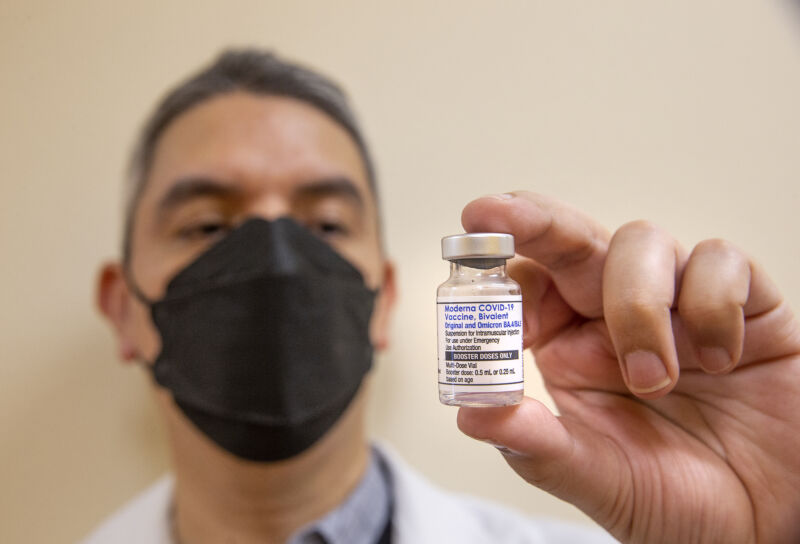The Food and Drug Administration on Tuesday altered its authorizations for mRNA-based COVID-19 vaccines, retiring the original monovalent versions entirely, streamlining immunizations for the unvaccinated, and offering spring bivalent boosters to those aged 65 and older and people with certain immune compromising conditions.
The changes will need a sign-off from Rochelle Walensky, director of the Centers for Disease Control and Prevention, before they go into effect. The agency will convene its advisory panel of vaccine experts Wednesday to discuss the changes. Walensky is likely to sign off soon after.
According to Tuesday's updated authorizations, people aged 65 and older who have gone at least four months since their first bivalent booster can get another booster.
People who are immunocompromised can also get another bivalent booster if they have gone at least two months since their last bivalent shot. And, they can potentially get additional shots after that, which may be given "at the discretion of, and at intervals determined by, their health care provider," the FDA said.
Tuesday's change also means that all primary series doses for children and adults will also be the bivalent shot—not the original monovalent shots that only targeted the ancestral strain.
Unvaccinated adults can now get just a single dose of a bivalent vaccine to complete the primary series, given that most Americans already have some protection from a previous infection. Unvaccinated children from 6 months to 5 years old can get either a two-dose primary series of Moderna's bivalent vaccine or a three-dose primary series of Pfizer-BioNTech's bivalent vaccine.
Children and adults who have not yet received a dose of the bivalent vaccine as a booster are also eligible to get one, as they were before.
“At this stage of the pandemic, data support simplifying the use of the authorized mRNA bivalent COVID-19 vaccines and the agency believes that this approach will help encourage future vaccination,” Peter Marks, director of the FDA’s Center for Biologics Evaluation and Research, said in a statement. "COVID-19 continues to be a very real risk for many people, and we encourage individuals to consider staying current with vaccination, including with a bivalent COVID-19 vaccine. The available data continue to demonstrate that vaccines prevent the most serious outcomes of COVID-19, which are severe illness, hospitalization, and death.”
Left off the list of vaccine updates are healthy people from ages 5 to 65 who have already gotten their bivalent booster. They are not currently eligible for another booster, the FDA noted. Instead, it referenced its plans to follow an annual fall booster plan, saying, " The FDA intends to make decisions about future vaccination after receiving recommendations on the fall strain composition at an FDA advisory committee in June."



3175x175(CURRENT).thumb.jpg.b05acc060982b36f5891ba728e6d953c.jpg)

Recommended Comments
There are no comments to display.
Join the conversation
You can post now and register later. If you have an account, sign in now to post with your account.
Note: Your post will require moderator approval before it will be visible.